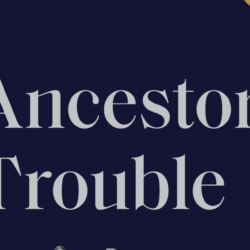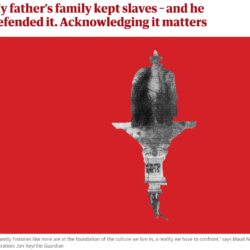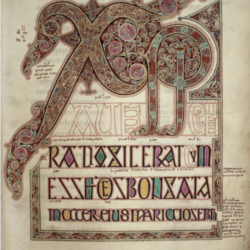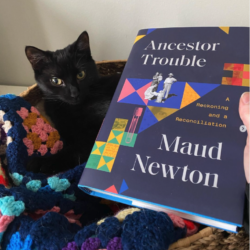
Writing About Abuse is Not Abuse*
If you are a writer struggling with the ethics of sharing your own history, remember that dragging these experiences out of hiding does not make you the harmful one.

If you are a writer struggling with the ethics of sharing your own history, remember that dragging these experiences out of hiding does not make you the harmful one.

The Guardian U.S. has published my argument for what I’ve called acknowledgment genealogy, the importance of reckoning with our individual families’ participation in slavery. “Amid a rise of laws forbidding discussions of racist histories, sharing our ancestors’ shameful wrongdoings is more urgent than ever” is the subhead. Acknowledgement is a crucial first baby step toward the repair we need. The illustration above was . . .

Anger to my mom is strength and unimpeachable truth, a companion to determination. I write about this a little bit in Ancestor Trouble, how the idea of identifying, much less acknowledging, difficult feelings such as fear or sadness fills her with rage.

On the one hand, it feels a bit self-centered to catch you up on the praise for Ancestor Trouble since my last post in April, but on the other hand it would feel rude not to acknowledge people who put time into saying thoughtful things about the book. I am always and forever a Southerner-one-step-removed.

My book, Ancestor Trouble, is anticipated this month by the New York Times, the Los Angeles Times, CNN, the Millions, the Chicago Review of Books, Apartment Therapy, Goodreads readers. Esquire has named it one of the best books of the year so far.